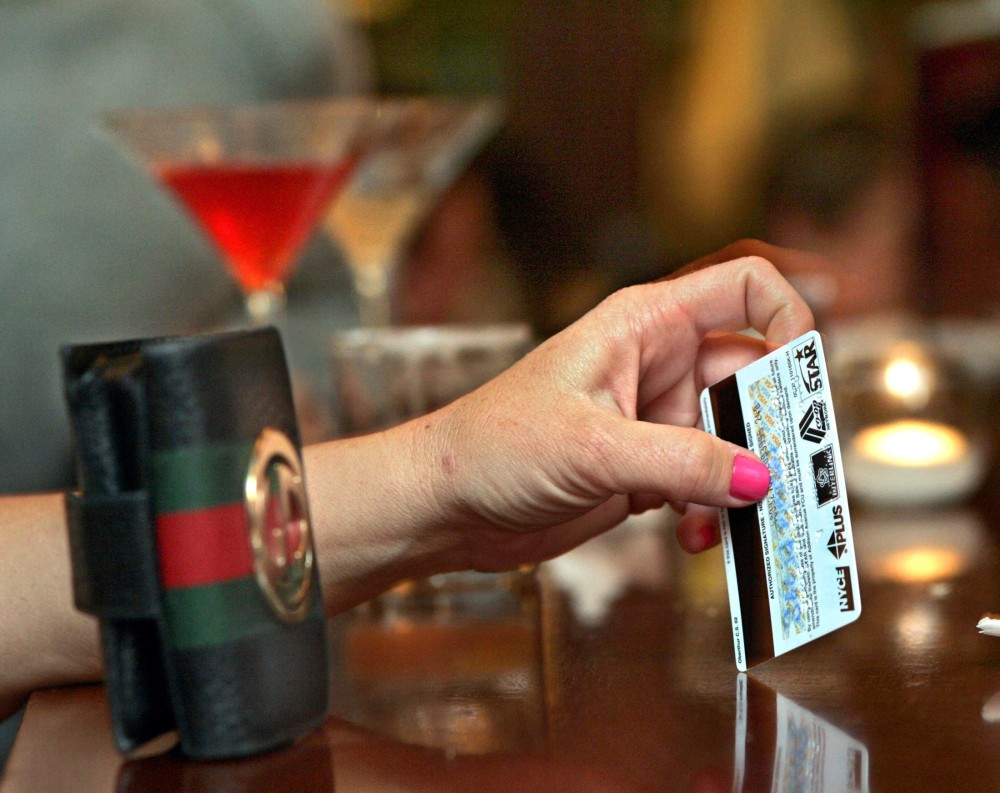By Mary Beth Storjohann
AdviceIQ.
Did you know that the average adult in the U.S. carries $5,596 in consumer debt?
That fact alone might account for the bad rap of credit cards.
buy orlistat generic buy orlistat online no prescription
Careless use of credit can wreak havoc on your finances in a variety of ways.
You might rack up a mountain of debt you’ll need years to pay off. You might end up paying thousands in interest to the detriment of your other financial goals. Your credit score might get hammered, hurting your chances to qualify for a mortgage or a car loan.
But credit cards aren’t inherently bad. Using a card doesn’t guarantee you a sluice run into deep consumer debt. Learn about credit and how your plastic works before racking up charges.
BASIC RULES
First, treat your credit card like a debit card, which draws money directly from your checking or savings bank account. Don’t charge more than you can afford, no matter your credit limit. Be mindful of the size of your bank account so you don’t end the billing period unable to afford to pay your balance, which you want to pay off regularly.
Keep your balance low. A credit limit of $5,000 doesn’t mean you ought to have a $4,500 balance at the end of the month, even if you can afford it. Your debt affects your credit score: Max out your cards and your score may suffer.
Make timely payments or you can incur a late fee, interest rates of up to nearly a third of what you owe, and ding your credit.
Late fees apply if you fail to make a payment within a certain time. If you previously paid on time the card company may (or may not) waive this fee. The Credit Card Act of 2009 caps late fees at $25 for first-time offenders and $35 for frequent offenders.
Set a reminder to pay your bill, or set up automatic payments.
Only buy what you need. Remember the debit card rule: Credit is not free money. Only use your credit card for routine shopping and planned purchases within your budget.
RATES
You need to understand a little card terminology to avoid costly mistakes. One of the most important: the annual percentage rate, or APR.
If you fail to pay your balance in full, the card company charges you the APR on all or part of your remaining balance. An item you bought for $20 using your credit card might end up costing you $25 next month. If your card carries a rate of 20 percent, you pay $20 for every $100 you charge if you don’t pay off your balance within your billing period (usually about a month).
You want the lowest APR available but beware of promotional offers. Some cards entice you with low introductory rates for a year and increase those rates, sometimes drastically, later.
MINIMUM PAYMENTS
Your statement includes a minimum payment that you can make. Minimum payments look manageable compared with your balance most of the time, until you consider interest.
Any time you leave a portion of your card bill unpaid, interest accrues on that balance. If you continue charging with that card while paying the minimum you owe, you never catch up to paying your balance off.
REWARDS AND POINTS
When you buy with a rewards card, you acquire points to redeem for travel, cash back and other goods and discounts. Sounds like a nice deal.
Maybe. Many cards, especially those that offer rewards or points for money off future purchases, also come with annual fees.
You often pay this fee during your first billing cycle although some cards waive the fee for the first year and start charging it in the second. As always, read the fine print and don’t charge everything in pursuit of points.
Credit card companies can offer these bonuses because of cardholders who use credit irresponsibly, the companies profit off the interest rates charged to those who don’t (or can’t) pay off balances.
Rewards and points only benefit you if you limit yourself to charging expenses you already planned for. The moment you start charging more to grab more points is the moment that rewards cards threaten your financial situation.
THE BIG UPSIDE
Credit cards come with safety features other methods of payment lack. When you charge on your credit card, the amount doesn’t immediately deduct from your checking account and you’re out no cash until you pay that card bill. This can help guard against fraud, theft and mistakes on your statement.
If you pay for an item with cash, you may or may not get that money back. You can always dispute a charge on your credit card.
If you pay with a debit card, remember that such a transaction is similar to cash and that the money leaves your account as soon as that transaction posts. Again, if you’re a victim of fraud or want to dispute the charge, you may or may not get that money back.
USE CREDIT CARDS?
Despite advantages to credit cards, many people are staunchly against using credit when we might all stick with debit cards or cash. And with reason: Out-of-control spending with credit cards can speed you into financial disaster. If you struggle to develop good money habits, you might be smart to stick to cash or debit until you can better manage money.
If you educate yourself about how this plastic works, take steps to use it responsibly and keep a budget to track all spending, you can find a credit card to be a useful financial tool.
___
ABOUT THE WRITER
Mary Beth Storjohann is the founder of investment advisory Workable Wealth in San Diego.














































































































































































































































































































































































